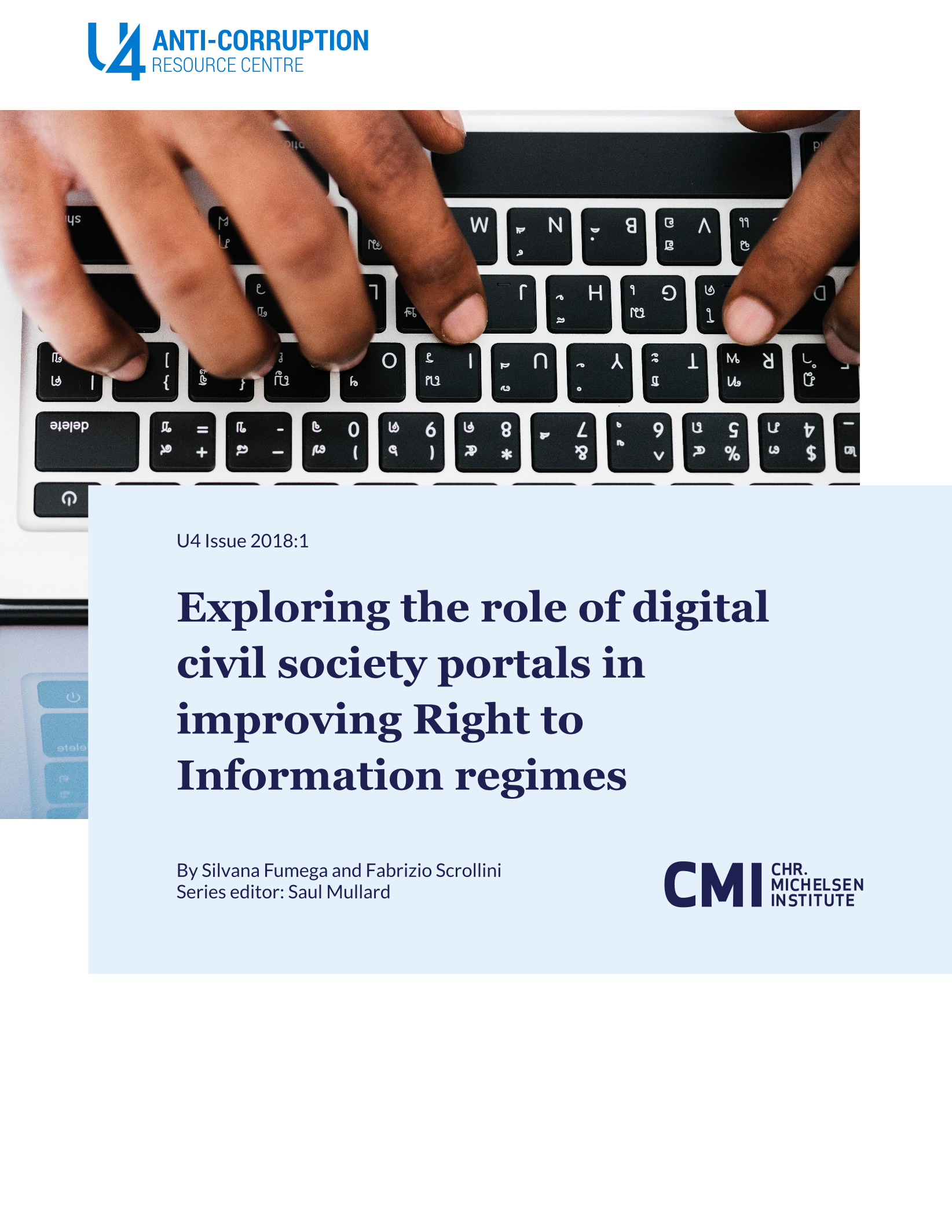Main points
- Civil society RTI portals can positively influence the way public RTI oversight institutions function
- The portals enabled a new type of civil society actor to emerge. Donors could consider supporting these types of projects to encourage the further development of this new type of organisation
- Supporting dialogue between NGOs and government in developing official portals can ensure that citizen-oriented logic is maintained in official RTI portals



